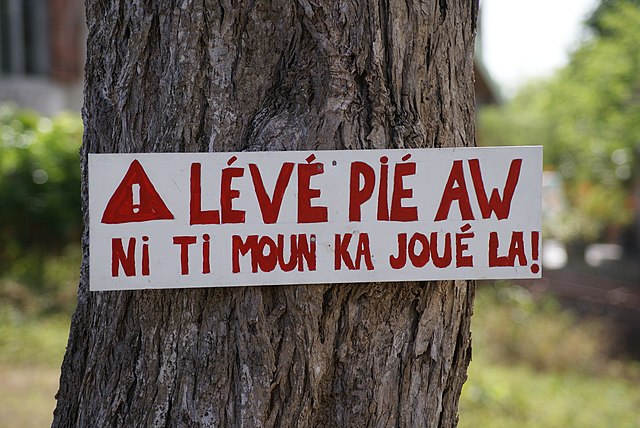A creole language, or simply creole, is a stable natural language that develops from the process of different languages simplifying and mixing into a new form, and then that form expanding and elaborating into a full-fledged language with native speakers, all within a fairly brief period. While the concept is similar to that of a mixed or hybrid language, creoles are often characterized by a tendency to systematize their inherited grammar. Like any language, creoles are characterized by a consistent system of grammar, possess large stable vocabularies, and are acquired by children as their native language. These three features distinguish a creole language from a pidgin. Creolistics, or creology, is the study of creole languages and, as such, is a subfield of linguistics. Someone who engages in this study is called a creolist.
A Guadeloupe Creole sign stating Lévé pié aw / Ni ti moun ka joué la!, meaning "Slow down / Children are playing here!"
Haitian Creole in use at car rental counter in the United States
Language acquisition is the process by which humans acquire the capacity to perceive and comprehend language. In other words, it is how human beings gain the ability to be aware of language, to understand it, and to produce and use words and sentences to communicate.
Victor of Aveyron



